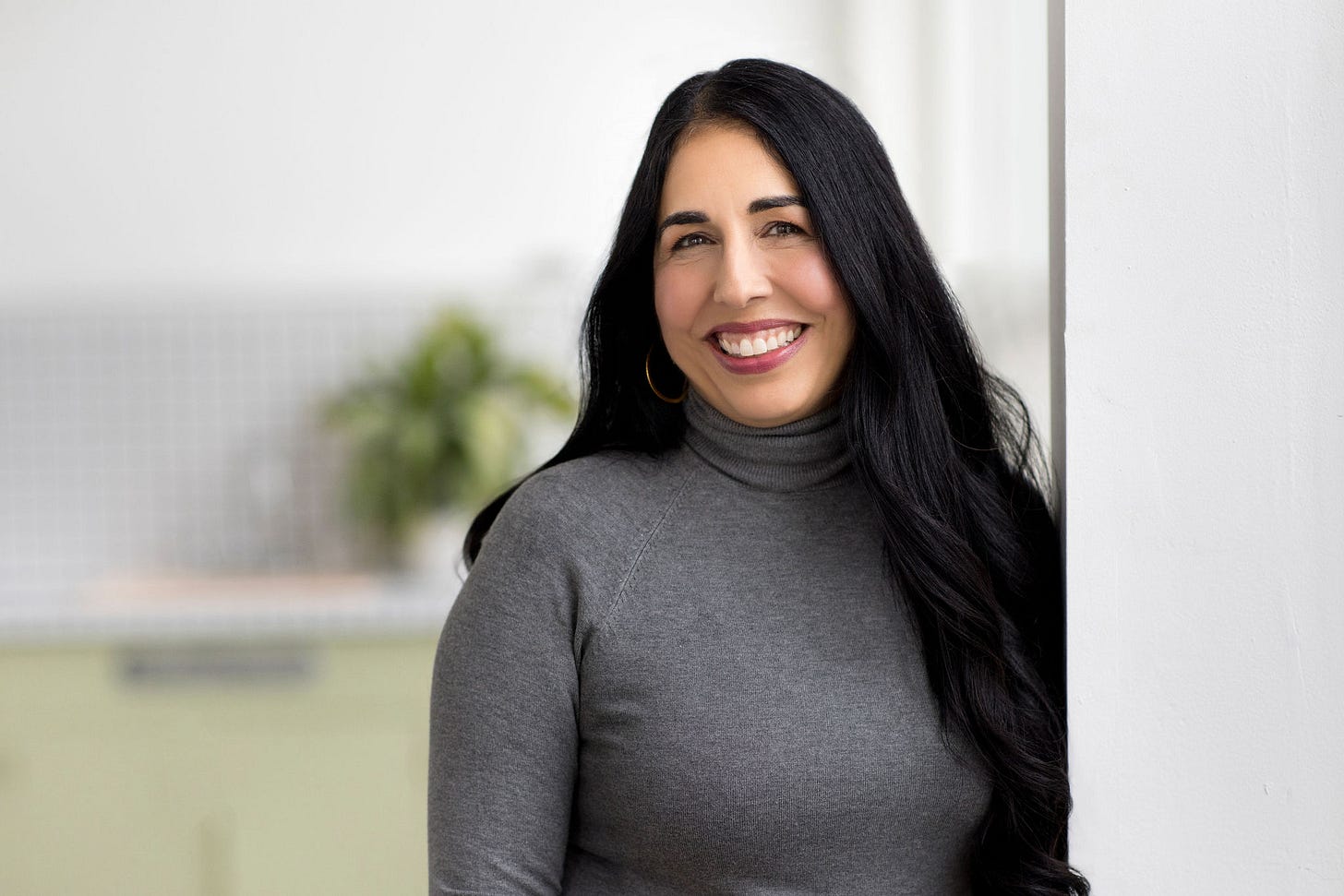The search for gratitude
And reclaiming joy in the body with Tanmeet Sethi, MD
I haven’t worked as an emergency planner for almost a decade, and still I wait—and often expect—for life to go catastrophically wrong.
Despite experiments with gratitude jars and phone reminders, my body still struggles to differentiate between danger and safety. After discovering Tanmeet Sethi, MD’s work, I’m starting to believe that positivity is not just optional—it is a necessity even in our darkest moments. She’s a physician and the author of Joy is My Justice, who recently joined me on The Write-Life Balance to discuss:
Why facing our pain is the path to liberating our body and mind
The surprising wellness habit she has yet to master (despite recommending it to her own patients)
How she helps others discover joy and self-compassion while prioritizing her own self-care.
Reclaiming Joy in the Body with Tanmeet Sethi, MD
WRITE 📓 (3:41)
Joy is My Justice originally started out in Tanmeet’s journals, to process her son’s diagnosis of Duchenne Muscular Dystrophy. But when friends and patients kept asking how she came to accept her son’s fatal condition, she realized that her own methods for healing could apply to a larger audience.
After landing an agent with her proposal and going up for auction, she worked on her book between the hours of 4:30-7 am, before getting her kids up to school and heading to the clinic or hospital for work.
It was the work of my heart, so [writing the book] didn’t feel arduous—it almost felt like something I had to do.
LIFE 👩🏽⚕️(1:08)
In addition to being a physician, activist, author, and speaker, Tanmeet is a mother of three children, wife, daughter, and sister.
[These roles] intermingle in a beautiful way, because my journey and my work are really healing for me, and my life really funnels into my work.
BALANCE 🙏 (8:58)
Tanmeet cites many medical studies that point to the connection between gratitude and improved physical health, yet encounters many people who resonate with her thesis, yet believe joy isn’t possible for them. She believes it’s because accessing joy requires confronting pain, which is the exact opposite of what humans are biologically primed to do.
Every piece of suffering and oppression strips us of our humanity, and joy is a way to reclaim part of that humanity—it opens us up to who we are and allows us to understand that we are a bigger story than the small slice of suffering that oppression has told us.
PARTING ADVICE 💭 (28:05)
For anyone looking to start a gratitude practice, Tanmeet cautions that joy is not about adding one more item to your to-do list, and more about “doing your things differently.” For example, her family incorporates practicing gratitude at the dinner table, and it’s just another way to have a group conversation.
Everything can be done in the moment if we take a breath and understand that this moment has more space than we think it does.
THINGS WE DISCUSSED 🗃
Digital Minimalism by Cal Newport
Flowers in the Dark: Reclaiming Your Power to Heal from Trauma with Mindfulness by Sister Dang Nghiem (not mentioned, but a worthy accompaniment to Joy is My Justice)
To learn about Tanmeet, you can:
Purchase Joy is My Justice on Bookshop, Amazon, or any major retailer
Subscribe to Joy Is My Justice
Follow her on Instagram
Visit her website
Hope you enjoyed this episode,
Sophia :)
P.S. My friend Maddie Burton once said, “We’re always thinking about what could go wrong, but we so rarely consider, ‘What ways could things go right?’” Our conversation about life’s uncertainties would be a great accompaniment to this episode.
When life goes up in flames 🔥
When tragedy strikes, how do you transform what remains into something beautiful?



"Accessing joy requires confronting pain"—such a counterintuitive but necessary perspective!
It's funny because I had been listening to a ton of podcasts recently with the theme of gratitude. It never gets old huh. When I start with what you're thankful for, my whole mindset shifts. I also love the piece you put in at the end about when something goes wrong, search for the right. Thank you for sharing and for all of the amazing content you put out!